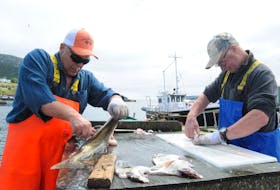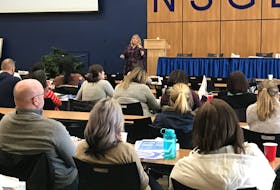Out of the 3,517 applications for permanent residence that Nova Scotia approved last year, almost half are from the Atlantic Immigration Pilot program (AIP).
To people who follow immigration in Atlantic Canada, the pilot program is known for being the first employer-driven, region-wide, novel attempt to generate population growth and attract skilled workers and international graduates.
The pilot program, originally launched in 2017, was extended in 2019. It has been praised for its faster processing time and a focus on employers' needs but was also questioned for being targeted by immigration scams.
Statistically, has the program done what it’s supposed to achieve in terms of retaining international graduates and absorbing talents? How are the successful candidates contributing to the economy?
Last week, Immigration, Refugees and Citizenship Canada (IRCC) released its first evaluation of the pilot, three years after the initial landing of the program’s first cohort, to answer those questions.
More people are working but with lower pay
The report shows that newcomers who came to Canada have a higher percentage of employment, compared to immigrants who came under other provincial immigration programs.
Overall, 97 per cent of the surveyed immigrants under the AIP said they are still working. In contrast, only 78 per cent of the newcomers who came under the general provincial programs reported employment.
This was not a surprise to Yoko Yoshida, a sociologist and former professor at Dalhousie University.
“It's not a surprise because this policy, the AIP, is based mostly on employers' employment, or the job offer,” said Yoshida who now teaches at Western University.
Contrary to most immigration programs that make work experience the key requirement, the AIP simply asks the applicant to provide a valid job offer from a Canadian employer.
However, AIP applicants reported lower earnings on average than other applicants. Immigrants under the AIP program averagely self-reported earnings of $43,000 whereas newcomers who came to Canada through other immigration programs said earn, on average, almost $50,000.
“Somebody might be worried about the lower economic performance in terms of the earnings. But given that the job vacancies were at the lower skill level, I think that was kind of expected. As long as they are keeping high levels of employment, I think we don't necessarily have to worry about earning too much,” said Yoshida.
Truck drivers, cooks, and food service supervisors are the top occupations of landed AIP applicants.
Retention rate within Atlantic Canada is very good, especially for the first year
AIP applicants showed a stronger affinity to staying in the Atlantic region compared to their counterparts in other economic immigration programs. The majority (90%) of AIP newcomers said they are still living in Atlantic Canada. The retention rate is only 82 per cent among PNP respondents.
However, this number dropped after the second year of living in the region. The Atlantic retention rate among AIP newcomers decreased by 12 per cent, almost the same as the other PNPs.
“This is something that the employers were also expressing in this report. They may not necessarily use AIP moving forward, but rather they’d prefer a PNP because they are kind of concerned that the ones that come under the AIP, get the permanent residency and get the work experience in Canada, they might go somewhere else,” said Yoshida.
"We can be cautiously optimistic about how they did. But at the same time, I think that we need to carefully monitor it (for) a little bit longer,” she said.
Lu Xu is local journalism initiative reporter, a position funded by the federal government.









